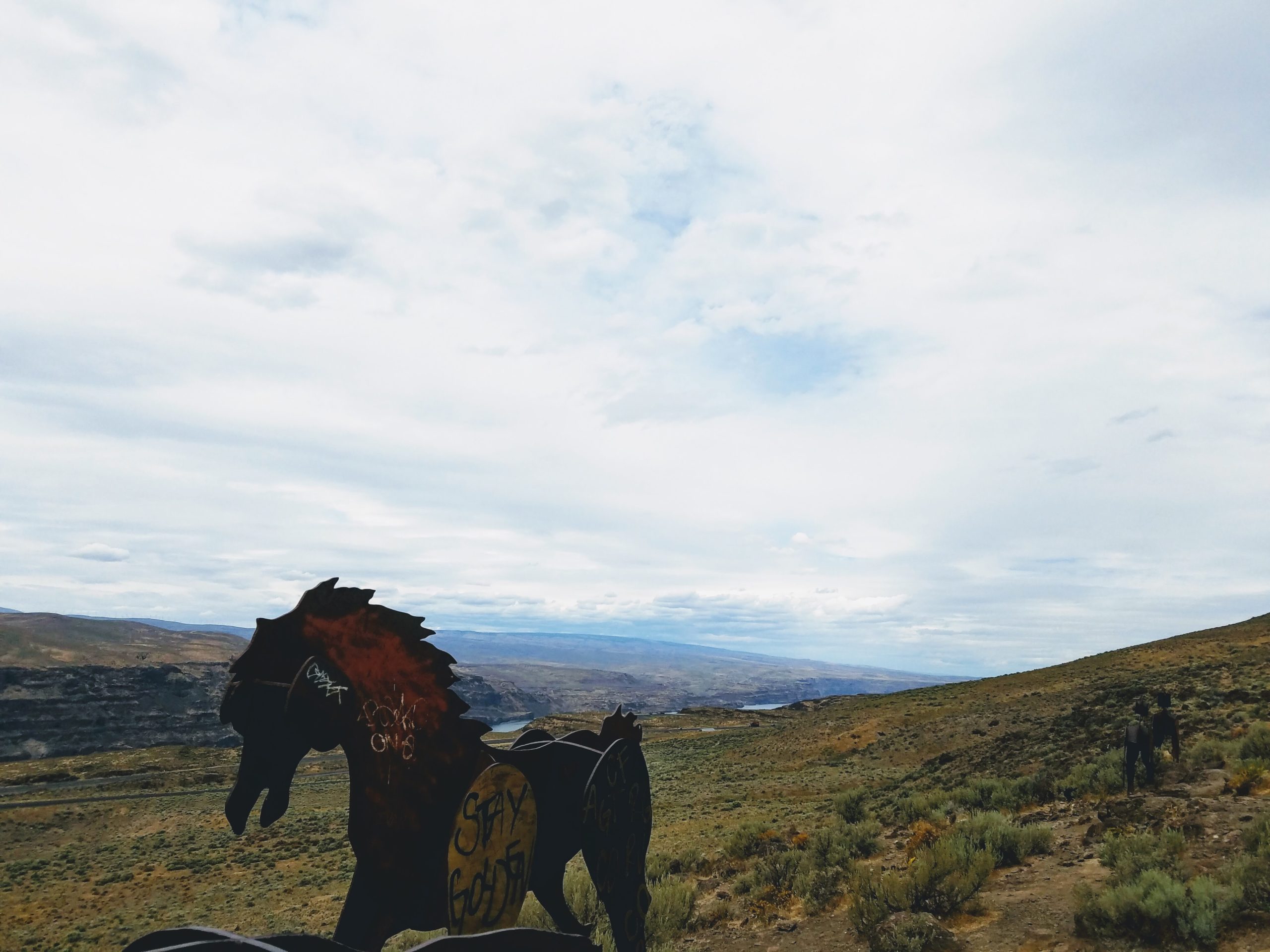I’ve been thinking about stories: how ubiquitous they are, and how terribly important to making it through the winter.
The flip side of this innate bias toward stories is that we turn everything into a story, don’t we? When we’re telling loved ones about our day, we try hard to turn it into a proper narrative with a rise and fall. And especially when we go further back, the episodes we recall the most from our deep pasts are those that have some great punchline or a deep emotional resonance, using the same language and tugging at the same feelings as a good fictional story do.
Is this why I am often fighting my own anxiety about the future? I’m seeing my own future in the same terms as I see the unread bulk of a novel I’m just beginning. In that novel, in those pages that fit in my hand, something is going to happen. Someone made it happen, and it’s only going to go one way. It’s going to turn out one way or another, and then it will be over.
Plus, any novel worth its salt will lay out all the threads of that story early on, and they will twist and braid until they come to an appropriate conclusion.

That isn’t at all what life is. It’s not foreordained to turn out one way or another. It’s not even foreordained to turn out at all, except in the certainty of eventual death ? (Oh God, it’s turning dark, stay with me). But until then, there’s never a final word.
So this difference between real life and story life—the fact that one has an author and an arc and a tidy ending, and the other has—who knows what?—it makes it hard for me to remember that stories can actually taint our own view of our lives. It can make us overinterpret the past, picking through like story weavers for the threads that prove why the path we’re on now is the right one and always has been, or was never the right one from the start, or finding proof that so-and-so has always been trustworthy or has always been a rat.
And we overpredict the future, or at least I do: we get a thread going about how it’s set to work out, and then we just think all we have to do is follow that thread until we reach the end of the spool.
And we see signs everywhere along the way, like mystery readers looking for the keys planted by the author about whodunnit.
But life is episodic, not advancing toward anything in particular. It waxes and wanes, and some things happen for no apparent reason at all. To the extent there’s meaning, it’s earned through reflection and by applying lessons learned to our future behavior.
This Sunday marks the end of the liturgical year, for those who use the Christian Lectionary. At the end of the year, right before we go into advent, the readings get into the Apocalypse. They are the terrifying prophetic visions of the prophet Daniel, and a bit from Revelation.
The word “apocalypse” itself, in Greek, means something like “revealing” (and this is why the book “Revelation” is called that: in Greek, it’s “apokalipsis.”) It’s when the curtain is drawn back, and we can see the truth that has always been present, waiting for our attention. Apocalypses can happen in our own lives whenever our patterns are disrupted, whenever tragedies (large or small) strike and shake us. Whenever something forces us to reckon with truths we hadn’t wanted to face.

In ordinary speech, “The Apocalypse” is a single event that some people think will happen, just like an earthquake or a war may happen. But there’s another way to look at it, and it’s one that makes quite a lot of sense along with the fact that the lectionary has us read about it every year at the end of the church year: it’s episodic. It’s repeating. Like the seasons, it recurs regularly.
But recurrence isn’t enough to destroy surprise. Every winter we’re surprised by the cold and dark, and we remark about it in conversation: “I can’t believe how dark it is so early!” Every year, literally like clockwork it happens, and yet we never remember how it feels. It never loses the capacity to shock. It’s just like watching a show over and over. Even though we know the characters will eventually fall in love, say, some part of us can still be on the edge of our emotional seats not knowing if they will-or-won’t.
Likewise the Apocalypse is something we can feel in our own lives all the time. It would be one thing to wait for a single event, a cataclysm that will happen once in time, in someone else’s distant future. But don’t we all feel the rise and fall of our own story lines of our own expectations that are met or not met, or are met in surprising and possibly mindbending new ways? When thing are revealed, and the curtain is drawn back, and we can be so surprised by our own lives. That is apocalypse.
Our lives are all a craving for story, because we crave for it all to make sense. And the beautiful thing about stories is—they do make sense, more than basically anything else. They survive so long, long after the linear events are over. They thrive, and take on new meaning, and keep us warm even in the surprising dark of the longest nights of the year. They remind us of the promise of the recurrence of longer days, of spring, of rebirth, of respite. Of revelation.
Pingback: The dark wait. | PsychoPomp